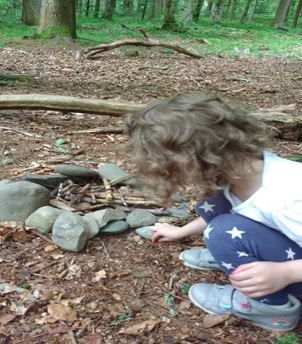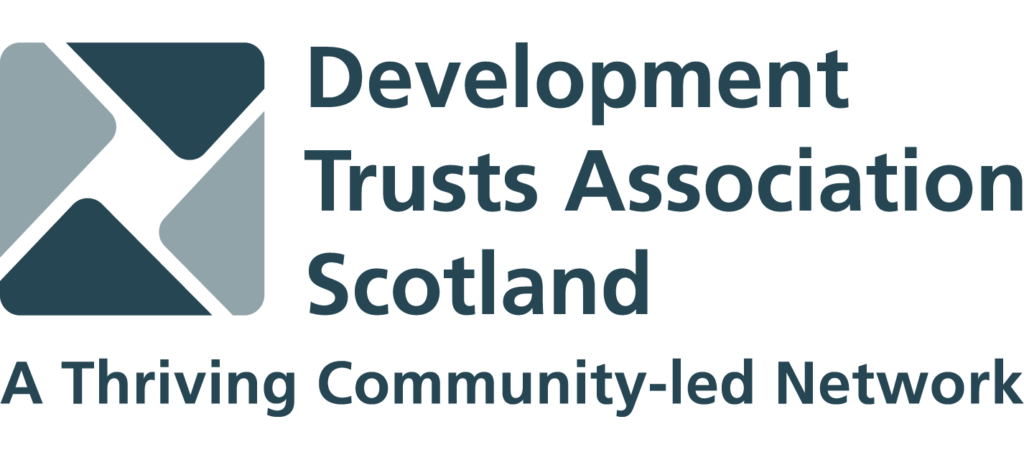What is GrowGetters?
GrowGetters is a creative project set up to allow families of children 4 years upwards, to explore their curiosity, learn and experience the enriching and creative potential of natural spaces, woodlands and the outdoors.
GrowGetters is funded through Midlothian Council Small Grants and takes place monthly at the Beacon.
Learning Outcomes:
- Children develop their curiosity and awareness of the natural environment.
- Children use apps and library resources to help identify flora and fauna species.
- Awareness of changing seasons and how different species depend on each other for survival.
- Recognising local heritage site and the role it has played in the growing community.
Ethos of Nature Play
Time outdoors is of increasing importance to children.
It provides, encourages and develops :
- problem solving.
- peer relationships.
- independence.
- confidence.
- self esteem.
- improvements in mental health.
- appreciation for the environment.
- gross and fine motor development.
- freedom to move.
- awareness of the importance of biodiversity.
- trust (personally and with others).
- overcoming fears, risk assess.
- reduction in anxiety.
- understanding of science and maths.
- creative potential.
These are just a few brief points that illustrate how spending times outdoors in the natural environment can benefit children and young people.
Children need to be given the opportunity to have autonomous learning experiences. They need to be able to make their own decisions and be involved in the risk assessment process.
Providing children with opportunities to take charge of their own learning with minimal adult intervention is crucial to building self confidence and developing the ability to solve problems. It is important to allow children the space and freedom to come to their own conclusions without being directed to the outcome.
It is also well reputed that nature has a very calming effect and can vastly improve mental health. Even just an hour a day can be enough to achieve this.
Undirected nature play is the most beneficial way to achieve this.
In my personal experience of working with young children in an outdoor learning environment, there are visibly enormous changes particularly in children with extra support needs.
The natural environment provides a plethora of sensory and well-being experiences.
For example:
- Sorting through leaves
- Collecting and transporting natural objects
- Stacking and balancing stones
- Listening to different sounds
- Feeling the effects of different weather on the face (wind, rain, snow, sunshine)
- Seeing the effect of sunlight coming through trees
- Investigating habitats in fallen trees
- Observing wildlife
- Building dens and shelters
- Climbing trees and traversing natural obstacles
All these experiences seem very simple and are often overlooked in their potential to have a profound impact on a child’s health.
Forest School is one such growing movement in the UK that fosters this holistic experience (please refer to https://www.forestschoolassociation.org for more information)
The theory is essential, regular and repeated contact outdoors with a system of scaffolding support in place by the facilitator.
There are many activities to get started with nature play that can be built upon and progressed in line with a child’s own development and confidence.
Some children will already be very confident and outgoing when presented with a nature space. This in itself is wonderful but also important to remind the very confident child of being aware of their surroundings.
Natural environments are forever changing due to weather. This can be minimal, such as a few fallen leaves or a new dip in the ground to the extreme such as a fallen tree or mudslide. Risk assessing is always of great importance and something that even very young children can be involved with. Ask the child questions such as “Do you think that is safe?” and “What do you think you should do?”
Allow the child the opportunity to explore and come to their own conclusions rather than stop them due to preconceived adult worries.
Such practices allow the very confident child to stop and think and develop awareness.
At the opposite end of the scale is the very reluctant and nervous child. Some children will have had very little time in a wild environment. Simple acts such as traversing uneven ground will be an alien concept to them and they will not possess the balance skills required to prevent from falling over. These are the children that need the scaffolding support the most.
Setting small, achievable tasks to increase confidence, self-esteem and curiosity are beneficial.
It is a balance of space and support.
This guide will continue in providing a range of nature play activities to introduce to children that will enable them to take ownership of their play, develop social and emotional skills and improve their general sense of well being.
More information about taking part in GrowGetters
Further resources:






